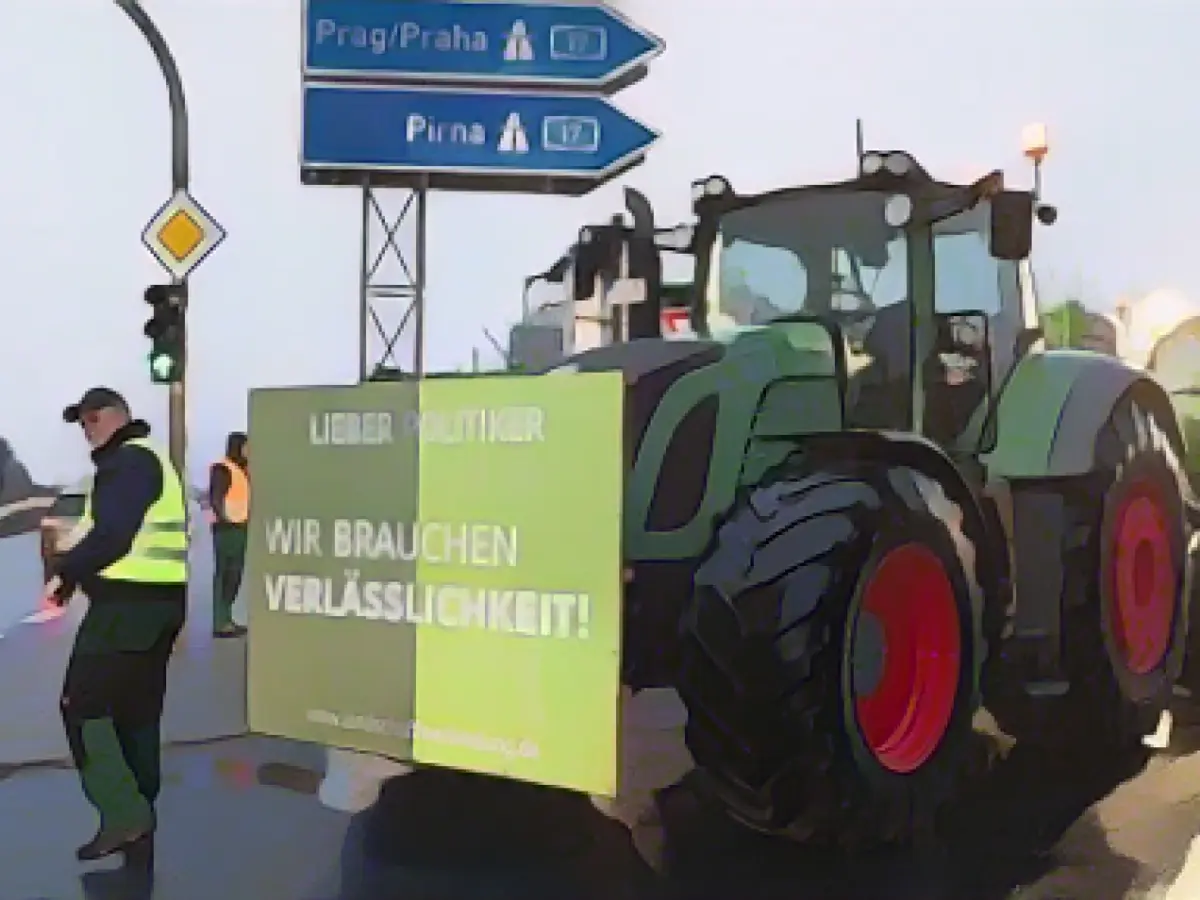Protests - Farmers vent their anger: highway ramps closed
Farmers in Saxony, Saxony-Anhalt and Thuringia vented their anger at decisions made by the federal government on Thursday morning and blocked numerous highway ramps. Robert Erdmann from the "Land schafft Verbindung" association told the German Press Agency on Thursday that several tractors were parked at the Döbeln-Nord slip road on highway 14. He himself had also come with his tractor to protest. For the regional associations, the cross-border action was to be expected and a logical conclusion to the prevailing discontent. According to the police, there was no major traffic chaos or incidents.
The farmers' protest is directed against the planned abolition of tax concessions by the traffic light coalition. The tax breaks for agricultural diesel and the tax exemption for agricultural and forestry machinery must be retained, according to the call for the protests, which is available to the German Press Agency.
According to the state farmers' associations, the main focus of the protests on Thursday was in Saxony. In addition to the Döbeln-Nord and -Ost slip roads, the farmers there also blocked nine junctions on the 72 and 38 freeways in the Leipzig area, for example, according to the police. In Zwickau, farmers moved from junction to junction with their machines. In the Dresden area, six slip roads were impassable in the morning.
According to a spokesperson for the Görlitz police department, ten slip roads were initially blocked in the morning. There were 24 tractors at the Görlitz junction. According to the spokesperson, the protest was peaceful and rescue lanes were kept clear. There were also blockades at several slip roads in Chemnitz.
According to the police, the protests usually ended after an hour. They were peaceful and cooperative. Only on federal road 156 near Bautzen was a suspicion of coercion being investigated.
The protests had already been planned and announced last week, said the managing director of the Saxon Farmers' Association, Stefan Seyfarth, to the German Press Agency. The association had not organized the action, but had not prevented the farmers from doing so.
Especially in Saxony, farmers are under great pressure and are currently unable to get rid of their grain, said Seyfarth. "However, we have agreed with our colleagues that this will be the last campaign before Christmas. If the federal government does not change its plans by then and does not cancel the resolutions, we will protest bigger, more intensively and for longer from January 8," he announced.
In addition to the Saxon farmers, farmers in Thuringia and Saxony-Anhalt also took part in the protests. According to the police, the Gera-Leumnitz slip road on the A4 highway and a traffic circle in Gera-Trebnitz leading onto the B2 federal highway in Thuringia were blocked. In addition, 11 agricultural machines blocked the Coswig junction in Saxony-Anhalt. In Halle and Magdeburg, however, the police were not aware of any protests.
A spokesperson for the state farmers' association in Saxony-Anhalt told the German Press Agency that the decentralized action was to be expected and shows how much pressure the farmers have come under. "Something like this has not happened often in the past. But the latest decisions in Berlin were the straw that broke the camel's back."
Axel Horn from the Thuringian State Farmers' Association explained that the association supported the protests in principle. "The anger is understandable." The association is currently putting all its energy into planning a nationwide action planned for January 8.
Read also:
- A clan member is punished here
- Traffic lawyer warns: Don't talk to the police!
- Will he be convicted as Jutta's murderer after 37 years?
- He also wanted to kill his cousin
- The protests extended beyond Saxony, involving farmers in neighboring Thuringia and Saxony-Anhalt as well.
- In Thuringia, the Gera-Leumnitz slip road on the A4 highway and a traffic circle in Gera-Trebnitz leading onto the B2 federal highway were blocked by farmers.
- Similarly, in Saxony-Anhalt, 11 agricultural machines blocked the Coswig junction.
- Despite the protests, in Halle and Magdeburg, the police reported no disruptions or blockades.
- The decision to block highway ramps and junctions was a response to the federal government's plans to abolish tax concessions, specifically for agricultural diesel and agricultural and forestry machinery, as part of the traffic light coalition's policies.
- The police in Görlitz reported 24 tractors at their junction, with the protests there being peaceful and orderly.
- The blockades also affected traffic in cities like Leipzig, Zwickau, and Dresden, with numerous highway ramps closed and junctions blocked.
Source: www.stern.de








